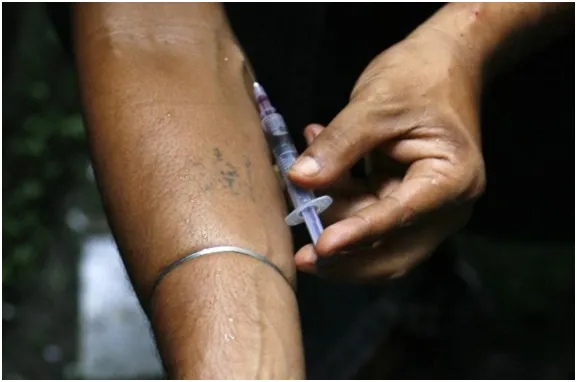Excessively couple of teenagers and youthful grown-ups with an opioid habit are tried for hepatitis C, despite the fact that they're at high hazard for the liver contamination, analysts say.

In 2016, hepatitis C executed in excess of 18,000 Americans, making it the most well-known reason for death from a reportable irresistible malady, as indicated by the U.S. Communities for Disease Control and Prevention."We're botching a chance to distinguish and treat youngsters who are in danger for this lethal contamination," said Dr. Rachel Epstein, lead creator of the new study."Screening for [opioid addiction] and other medication utilize, and afterward testing for hepatitis C in those at high hazard, can enable us to complete a superior occupation of killing this genuine disease, particularly now that exceptionally powerful hepatitis C pharmaceuticals are affirmed for youngsters," said Epstein, a postgraduate research individual at Boston Medical Center.Her group contemplated the electronic therapeutic records of in excess of 269,100 adolescents and youthful grown-ups, ages 13 to 21. Somewhere in the range of 2012 and 2017, the patients had visited one of 57 governmentally qualified wellbeing focuses that give social insurance to underserved networks in 19 states.
Of the 875 individuals with analyzed opioid dependence, just 36 percent were tried for hepatitis C. Of those, 11 percent had been presented to hepatitis C and very nearly 7 percent had proof of interminable hepatitis C contamination, the analystsfound.Overall, 2.5 percent, or in excess of 6,800 adolescents and youthful grown-ups who visited the wellbeing focuses, were tried for hepatitis C. Of those, 122 tried positive for it. Those well on the way to be tried were dark, had any substance utilize scatter, and were ages 19 to 21.The examination was exhibited Thursday at IDWeek, a gathering of irresistible illness authorities, in San Francisco.Injection tranquilize clients who share needles frequently spread hepatitis C. It's conceivable that specialists don't test speculated opioid abusers in light of the fact that the medications are accessible in pill shape, which doesn't expand the danger of hepatitis C. Be that as it may, thinks about show numerous young people who abuse medicine opioid pills in the long run start infusing drugs, the analysts noted.Current rules just prescribe hepatitis C testing for known infusion medicate users."The issue is muddled by the way that insufficient in danger youth are screened for opioid or other medication use for an assortment of reasons, including absence of time, comfort level among clinician and patient, and protection and disgrace concerns," Epstein said in a gathering news release."And notwithstanding when sedate utilize is recognized, there's a conviction that adolescent are more averse to test constructive for hepatitis C, which isn't really the case as we appear in our investigation. Unmistakably, this is an ignored gathering that is at high hazard," she concluded.Research displayed at gatherings is typically viewed as primer until distributed in a companion surveyed therapeutic diary.